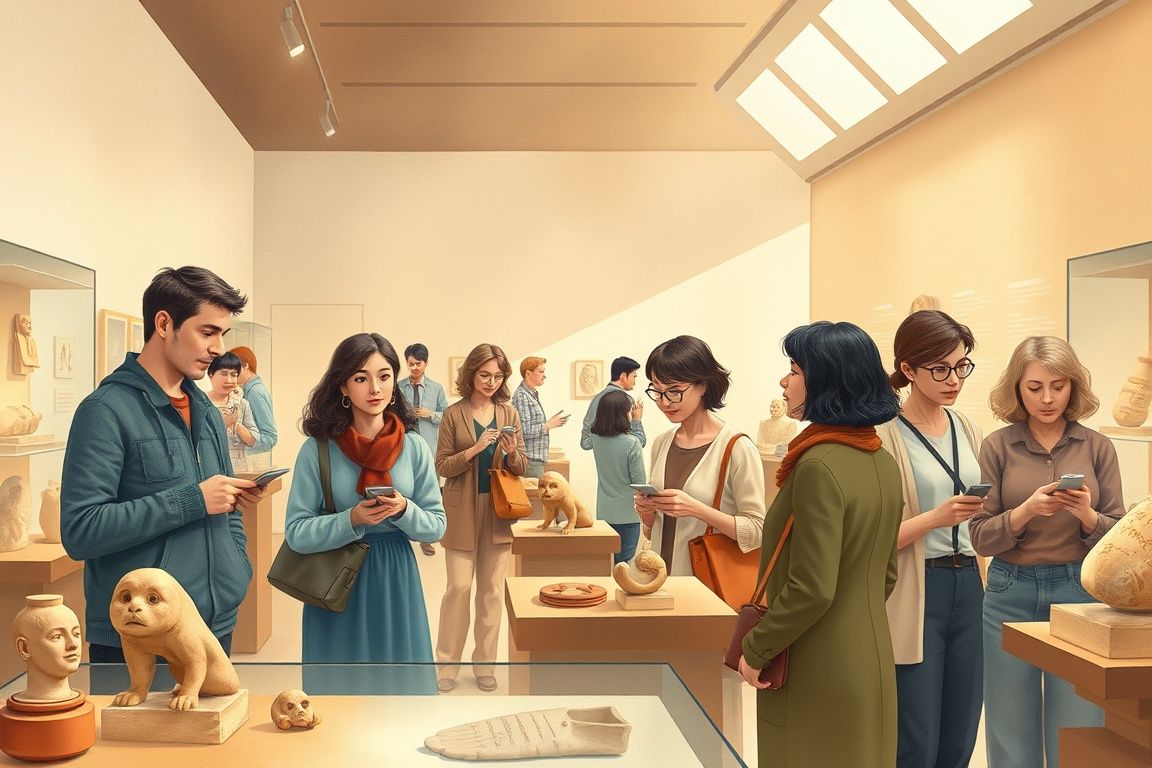The Role of Museums in Historical Preservation

This course highlights how museums work to preserve artifacts and educate the public. Participants will learn about conservation techniques, the ethical considerations of collecting and displaying items, and how museums ensure the survival of cultural history.
Why It’s Worth It
Gain a deep understanding of how museums preserve artifacts and cultural history, enhancing your knowledge in historical preservation.
Learn ethical considerations in artifact collection and display, preparing you for informed decision-making in this field.
Develop skills in museum education and community outreach that can be applied in various cultural and educational settings.
Your Learning Roadmap
Introduction to Museums and Historical Preservation
This module provides learners with an overview of museums, emphasizing their dual role in artifact conservation and public education. The module discusses the evolution of museums from repositories of objects to dynamic centers of cultural engagement and historical preservation. Defining Museums in Society Historical Overview and Evolution Global Impact on Cultural Preservation
History of Museums and Preservation Practices
This module delves into the evolution of museum practices throughout history. Learners review key historical events that influenced museum operations and analyze traditional and modern preservation techniques, setting the stage for deeper understanding in subsequent modules. Milestones in Museum History Traditional Preservation Techniques Modern Innovations in Preservation
Conservation Techniques in Museums
This module focuses on the science and methodologies involved in conserving artifacts for museums. Learners are introduced to various conservation techniques and the importance of controlled environmental conditions. The exploration includes hands-on strategies and case studies drawn from museum best practices and literature. Fundamentals of Conservation Environmental Controls and Preservation Case Studies in Conservation
Ethics and Cultural Representation in Museology
This module addresses the ethical dimensions of collecting, curating, and exhibiting artifacts. Learners discuss the complexities of cultural representation and the responsibility museums have in presenting culturally sensitive information. Issues such as repatriation and ethical collecting are explored through theoretical and practical lenses, referencing frameworks from critical museology literature. Ethical Frameworks in Museums Cultural Sensitivity and Representation Controversies and Repatriation
Education and Community Outreach
This module focuses on museums’ educational roles and their efforts to connect with communities. Learners discover interactive methods for engaging audiences and how museums serve as centers of learning. The module highlights the importance of outreach programs and educational strategies to ensure cultural history is accessible to all. Museum Education Strategies Interactive and Immersive Exhibits Community Engagement and Outreach
Digital Technologies in Preservation and Engagement
This module addresses how digital technologies are revolutionizing museum practices. Learners explore digital archiving, virtual exhibits, and interactive platforms that enhance both preservation and public outreach. Topics include the benefits and challenges of integrating technology into traditional museology practices. Digital Archiving and Documentation Virtual Exhibitions and Tours Enhancing Visitor Engagement Through Technology
What Users Are Saying
All You Need to Know
Enroll Now!
Real-time engagement with an AI tutor for instant feedback.
Flexible learning schedule that fits your lifestyle.
Comprehensive exploration of both historical and modern practices.
In-depth analysis with case studies on successful museum projects.
Interactive lessons focusing on practical applications of concepts.
Tailored advice based on individual learning needs.
